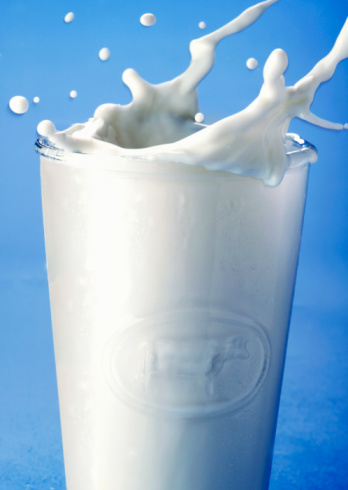LottèNidoo - " 1 "
LottèNidootm
Infant Milk Powder | Baby Milk
New MA-MA - Your Daily Diet
Breastfeeding MA-MA must know about.
Calories - Your energy needs are even greater during breastfeeding. General, breastfeeding women need additional 500 calories per day. If you breastfeed for more than 3 months, you may need to further increase your caloric intake daily.

Protein - Breastfeeding women have protein requirements that are 30% higher than normal. If you do not consume enough protein of your own, your milk production may decrease or you may finish your own protein stores. Source of protein may come from fish and seafood, poultry, beef, lamb, pork, liver, eggs, peas, beans, nuts, and cereals, milk, cheese and yogurt...etc
DHA - Fatty acid docosahexaenoic acid (DHA) is important for the visual and mental development of your baby. Your intake of DHA directly affects the DHA content of your breast milk. Additionally, researchers have found a significant association between the DHA content of breast milk and the visual acuity of infants. Good source may come from eggs, brains, liver, fish.
Vitamins and minerals - Vitamin A, vitamin B6, vitamin D, folic acid, calcium, and zinc are especially important during breastfeeding.
Vitamin A is important for healthy skin, glands, and eye function. Although most infants have a store of vitamin A at birth, human milk is an important source of vitamin A and other carotenoids (naturally occurring nutrients found in many fruits and vegetables). Research shows that carotenoids may help enhance the body’s immune system. Good source may come from Liver, eggs, and cheese are good sources of vitamin A. Vitamin A is also found in beta-carotene and other carotenoids.
Calcium helps build bones and teeth, and promotes nerve and muscle functioning.Good Source may come from milk and dairy foods, salmon or sardines with bones, and spinach are good sources of calcium.
Vitamin B6 helps proper protein absorption, helps form red blood cells, and promotes nerve functioning. Because of your increased protein intake during breastfeeding, you require more vitamin B6. Good source may come from Meat, liver, whole grains, legumes, and potatoes are good sources of vitamin B6.
Vitamin D helps build and maintain bones, and is needed for calcium absorption. If you are deficient in vitamin D, your baby at risk for developing rickets, a disease that can cause deformed bones. Good source may come from fish, liver, and egg yolks.
Folic acid is necessary for normal cell growth and division. Good source may come from liver, leafy green vegetables, oranges, and cantaloupe.
Zinc - More than 100 enzymes used in digestion and metabolism require zinc. An inadequate supply of zinc in breast milk may limit your baby’s appetite and growth. Good source are from seafood, liver and meat.
We recommend to take LotteNidoo™ - Gold daily to give your body a good source of all nutrients.
